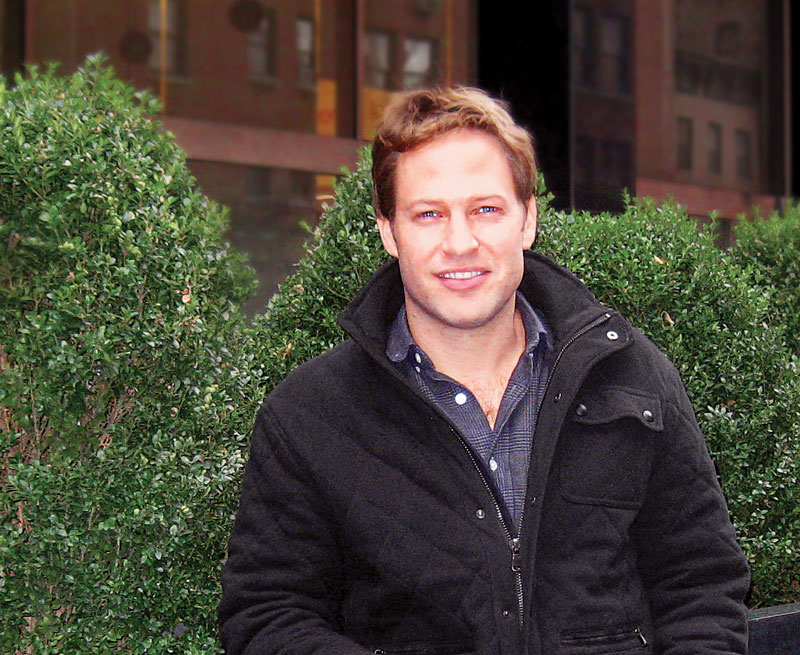For many leaders in the quick-service industry, the restaurant business is their lifeblood. Many start out as a dishwasher, cook, or cashier and work their way up through the ranks.
But for some CEOs, the quick-service industry represents a clean break from their successful careers in other fields, like banking and technology. As a result, these leaders bring a unique set of skills, experiences, and entrepreneurial spirit to their new endeavor.
Shailesh Kumar worked on Wall Street as an investment broker for several years, but eventually longed to switch things up. “I went to business school to become an entrepreneur and start my own business, to start something that I can look at and say that I created this, [to] be my own boss, and follow through on a passion and a vision,” he says.
“What I was passionate about at the time was being an entrepreneur, and this was in the late ’90s with a huge tech boom going on,” he adds. “You had all of these guys going into business for themselves, and it was very fascinating.”
After working for several large banking institutions before losing his job in 2010, Kumar decided to pursue his dream of opening his own restaurant, which came to fruition last winter with Thaaja Indian Food Bar in Washington, D.C.
The passion that drives outsiders to the foodservice business can be a major advantage in the quick-service industry. Qaiser Kazmi, who once worked as a project manager for an optical-network technology firm, quit his job in 2008 to follow his own passion. He opened Merzi, a healthy Indian concept in D.C., about two years ago.
After struggling for several months with the same challenges inherent to any new fast-casual restaurant concept, Kazmi’s restaurant had dozens of patrons lining up each day for carryout Indian food.
He says one of the fundamental attributes he’s carried over from his previous career is persistence.
“Never, never give up in life, because there are doors that we can never gauge when they are going to open or who is going to open them,” Kazmi says. “I was in despair to some degree when I didn't have investment money for [Merzi]. As it grew, I tried staying as positive as I could, and then the Merzi journey started.”
Kazmi sees a parallel between the work he did creating large, complex networks and developing a quick-serve restaurant, mostly in the initial planning and coordination it takes to manage various stakeholders and employees.
“The stuff I used to work on, there was a lot of planning involved: Here's a problem, you’ve got to come up with the solution, and here is the team to come up with the solution,” he says. “It may have [taken] a couple of months prepping to make sure it worked and the execution was done correctly.
“Same thing in the restaurant industry: Success is based on the methodical work you do beforehand. All these things need to fit together for the end result to work well.”
In addition to a fresh eye and a newly minted passion for foodservice, outsiders in the quick-service industry also offer a keen sense of innovation. Nick Kenner, founder and managing partner of New York City–based salad chain Just Salad, developed a reusable bowl as a way to market the concept’s environmentally friendly practices while saving both the business and his customers money.
“The concept was driven from a customer viewpoint, with a lot of disregard of what you can and cannot do in a restaurant business,” says the 31-year-old, who spent two years working for a hedge-fund firm before developing his salad concept.
Kenner says his experience in the demanding currency-trading field also taught him the importance of being organized.
For Kazmi, organization means staying cognizant of how top-level decisions can affect both the customer experience and the work of his front-line employees, who often make or break a quick-service concept.
“That’s part and parcel of being someone who’s able to communicate: You’ve got to take on board many, many people’s views and ideas and put them in a package that is going to work going forward,” he says.
Kenner’s previous experience helped him realize the necessity of setting high standards for himself and his concept. In addition, his background in investments molded him into an effective risk-versus-reward evaluator.
“When it comes to a menu item, we get immediate answers from our customers, and if it's not working, we change it,” he says. “A lot of the time, the reward outweighs the risk, because if it’s popular, you keep it on … and if it is not, then it is something that goes away and people forget about it the next week.”
Kumar says his ability to navigate risk and wade through many unknown variables are just two of the skills he’s transferred from his previous career that have helped him launch his concept.
“Working on Wall Street teaches you a lot of tools that I will never regret doing because you look at business, ideas, and concepts in a very different way,” he says. “It schools you in a very practical manner.”










